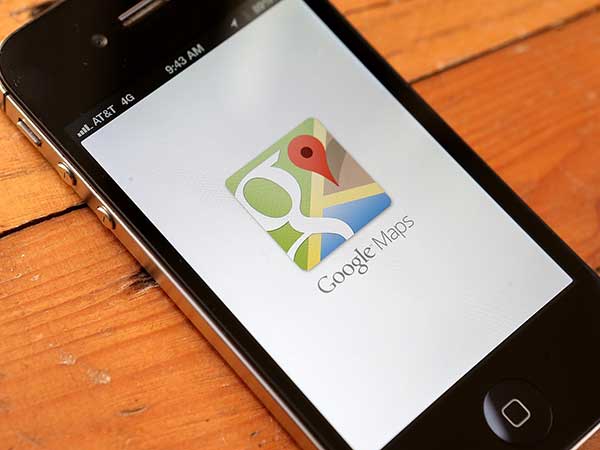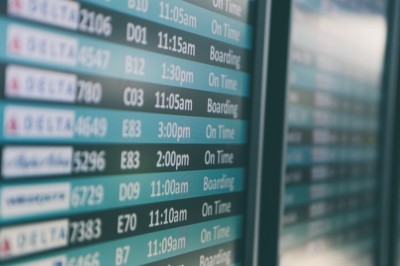You see them in nearly every city you visit. Forlorn little buildings with faded signs in the windows advertising their services: travel agencies. Ask anyone on the street, and it seems like it’s a given that these agencies are dying in the Information Age when a plane ticket is just a click away. Or are they? While it’s true that technology and big data have changed the landscape of how we plan to travel forever, there’s still room for the travel agent in our modern world. Here’s how big data has changed the travel agent’s role—and why they’re still relevant.
Digital travel “agents”
Let’s talk about the new kids: the data-driven sites and apps that make recommendations based on your searches and other personal data. These sites make it easy to book the cheapest ticket and even allow users to set alerts for when low fares are available, but at the moment, they’re not always the best at giving advice. Some travelers prefer a more personalized approach to travel planning, and like the human touch of working with a travel agent—a tall order for data-based tools.
Some startups are trying to accommodate for this and change the status quo, using big data to personalize the online search functions more than your average site. Others are integrating online solutions with the support of a live agent for travelers who need a specific question answered. These apps and sites are getting more sophisticated each year, and they’re perfect for travelers who don’t mind taking a more hands-on approach to their own travel planning.
Travel specialist: A new breed of travel agent
Much like the health industry, travel agents are shifting online, thanks to big data. There are some key differences between travel agents in the past, and today’s agents and “travel specialists”. Instead of relying on an agent to book the trip, clients are now more likely to seek help with the little details, deferring to the expert’s experience. They want someone who’s been there, not someone sitting in an office, making calls.
The new travel agent is a project manager of travel, working to find the best solutions to the client’s needs. With the number of options available to the modern traveler, clients are looking for something more than information: they’re looking for advice. They’re looking for recommendations on where to go, the best accommodations, and all the other little details that often get overlooked until the trip is actually underway. They want to avoid the information overload, but don’t want to miss out on the travel experience or have something go wrong. Today, travelers want peace of mind and one less decision standing between them and their dream getaway.
Who is left behind?
Of course, with all the changes big data has brought to the travel industry, some travel agents have been left behind. When big data jobs are added, other positions are lost elsewhere. Adapting to the new normal is never easy, and some agents just haven’t been able to keep up with the changes initiated by big data solutions. According to the Atlantic, the number of travel agents in the U.S. dropped from 124,000 in 2000, to 74,000 in 2014. Though the transition from traditional travel agents to travel specialists is still in progress, these numbers show that the digital transition has definitely put a good chunk of agencies out of business. Some of these agents have adapted and moved toward a travel specialist role, while others have been forced to find other careers with more demand.
Why travel agents are still relevant
Despite the dramatic drop in traditional agencies, there’s still room in the travel industry for the modern travel advisor. What a travel agent’s role really comes down to these days is providing for a clientele that puts a premium on their own time, and prefers the luxury of having a trip planned by a professional. Young professionals and families are usually short on time, and may only get a precious week or two of vacation per year. People spend a lot of their expendable income on vacations, so they want to make sure everything is planned perfectly—and they want the help of an expert to make sure the trip is a rousing success. Spending a little extra is a small price to pay for the insurance of an expert opinion.
While budget travelers may thrive happily on new digital booking tools and review sites, others like the experience of having everything taken care of. The good news? The luxury of choice is more available than ever. Big data might help travelers get to their destinations faster and cheaper, but it hasn’t diminished the value of the human role in travel planning—it’s simply become a tool in the modern travel agent’s kit—and evolving that role along the way.
The future of travel agents
It’s an exciting time to be a travel agent—big data has made it easier than ever to research, plan, and book the perfect trip for clients, at a level that’s comfortable for them. Today, big data’s role in the future of travel agencies is giving agents and specialists new ways to customize packages and meet their clients’ needs. The rise of big data doesn’t mean the death of travel agencies—it just means a shift in the way things are done.




![Ride-sharing impact on drunk driving in the US [Infographic]](https://crayondata.ai/wp-content/uploads/2022/05/driving-1.jpg)


